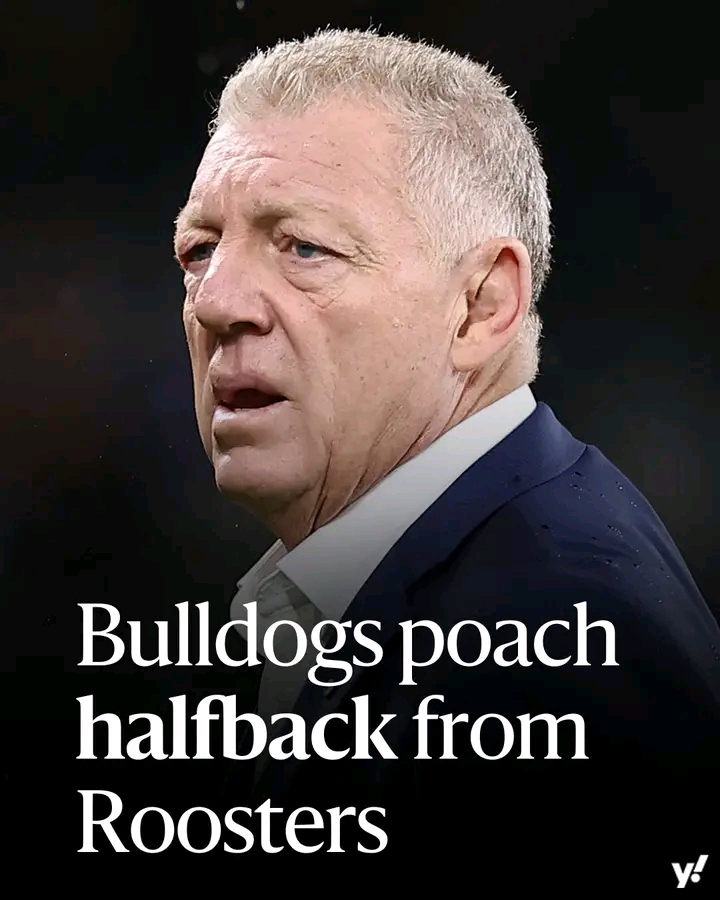Brisbane Broncos Coach Michael Maguire Draws a Line on Player Contract Talks
Brisbane Broncos head coach Michael Maguire has opted to firmly draw a line in the sand: he will not be directly involved in negotiating player contracts with individuals seeking better deals. The outspoken former premiership-winning coach at South Sydney and State of Origin level has stated his refusal to mix football coaching with player remuneration — a stance that carries implications for club culture, salary‑cap management, and internal dynamics at Red Hill.
—
1. The Coach‑Management Divide: Clarity in Roles
Maguire is adamant that his responsibilities lie strictly on the field. In statements to SEN Radio, he clearly distinguished the coach’s role from that of management:
> “I’ve said I want to keep both … that’s up to the organisation to get that sorted … I tend to stay away from that; I like to just make sure I’m coaching.”
He summarised his philosophy simply: “I tell everyone who I want, and it would be great for both of those boys to be here … I like to just make sure I’m coaching.” This disciplined separation ensures that football decisions are not clouded by financial gain, and that management retains control of budgetary commitments.
—
2. Reinforcing a New Culture at Red Hill
Maguire’s stance on contract negotiations reflects a broader culture shift he’s driving at the Broncos. Previously labelled a “rock‑star” club, the Broncos are being reshaped with tighter discipline and self‑assessment. He’s enforced strict behavioral policies, including the so‑called “six‑pack ban” — requiring players to train with shirts on — aimed at promoting professionalism .
Elsewhere, Maguire has made it clear that standards and expectations around fitness, commitment, and attitude are non‑negotiable. The recent decision to drop star winger Selwyn Cobbo ahead of the Titans match was framed squarely as a cultural statement:
> “We’re pushing standards here … he’s got to look at a few things in his game,” he said, reinforcing accountability as the benchmark.
By staying away from contract discussions, Maguire strengthens the message: performance earns opportunity, not reputation or negotiation power.
—
3. Navigating a Tight Salary Cap
The Broncos face a complex salary‑cap challenge in 2025. With key stars like Payne Haas, Patrick Carrigan, Reece Walsh, Cobbo, and Kotoni Staggs all in contention for big paydays, funds are scarce . Maguire acknowledges the reality:
> “I’ve said I want to keep both [Staggs and Cobbo] … that’s up to the organisation to get that sorted.”
By stepping aside, he permits management to juggle deals strategically — leaving himself free to coach and maintain standards without being entangled in monetary pressures.
—
4. Turfing the “Maligned Coach” Narrative
Maguire’s methods have triggered criticism — including claims he’s “too tough” and that player buy‑in is lacking . But he’s received vocal internal support. Star players like Adam Reynolds and Kotoni Staggs have dismissed discontent stories, defending both the coach’s approach and the players’ acceptance of higher intensity .
Veterans too have weighed in. Phil Gould has dismissed talk of rebellion, emphasising that players are trying hard despite results, countering criticisms from pundits . Meanwhile, Corey Parker, former Broncos captain, insists Maguire’s job is safe — he has a three‑year tenure and needs time to fix structural issues . Even tough‑talking defender Ryan Hoffman defended Maguire, urging players to embrace the challenge rather than blame their coach .
—
5. Spotlight on Staggs and Cobbo
At the heart of Maguire’s stance are two off‑contract outside backs: Kotoni Staggs and Selwyn Cobbo. Both players are off contract at the end of 2025, and with limited cap space, Brisbane may realistically retain one — or ask another to accept a reduced deal .
Maguire has made his preference clear but left negotiations to club executives: “I tell everyone who I want … they jumped into training … working hard as well” . By avoiding direct negotiation, he ensures that remuneration matches performance, not coach preference, reinforcing fairness.
—
6. Culture Before Cash: The Maguire Blueprint
Maguire’s philosophy is steeped in a culture-first blueprint:
Define front‑office and coaching roles clearly — football is coaching territory; contracts are management’s domain.
Emphasise accountability — performance and behavior, not reputation, earn reward.
Model modern discipline — bans on relaxed displays (“six‑pack ban”) and benching underperformers keep standards sharp.
Promote internal equity — letting management handle financials protects fairness and strategic planning.
In Maguire’s view: if players are meeting standards, deserving talent will be rewarded — and the coach will advocate, not negotiate.
—
7. Early Impacts and Season Implications
The Broncos haven’t hit full stride. After six losses in seven games, they sit just outside the top eight . But signs of cultural tightening are evident. The Cobbo benching prompted wide discussion, but also signals that no player is exempt from scrutiny .
Performance remains the currency. With Reece Walsh returning and Adam Reynolds approaching 300 games, the Broncos are balancing culture reform with on‑field urgency .
—
8. What Lies Ahead
As the Broncos enter the critical mid‑season stretch, the pressure cooker will grow. Fans remain demanding (with many calling for Maguire’s resignation after recent form, according to Wally Lewis) . Management has hinted that Maguire’s future depends on delivering a top‑eight finish .
Yet all insiders remain aligned: Maguire will focus on coaching, not contracts — a bold culture play that may bring long‑term gains. Whether it translates to wins remains the million‑dollar question (though Maguire himself stays removed from that dollar).
—
Conclusion
Michael Maguire’s refusal to negotiate player contracts is no oversight — it’s a deliberate strategy. It reinforces:
Professionalism and accountability as non‑negotiables.
Role clarity — football vs finance.
Salary‑cap pragmatism, enabling strategic roster decisions.
A coaching identity built on discipline, clarity, and fairness.
If culture cures on‑field inconsistency, the Broncos could be stronger long-term. If not, Maguire’s tough‑love stance may be tested as fans, players, and board demand payoff.
—



